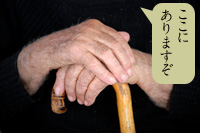
Let’s try dividing characters that use language into four categories of character “age.” Actually, of these four we’ve already looked at two. These are the “elderly” and “child” characters. This time we will talk about the “elderly” in a little more detail.
Previously, we addressed the word ja which is used by “elderly” characters and appears at the end of clausal phrases, such as “bengoshi ga ja, zaisan wo ja…,” (the lawyer [did something about] the assets…) but if we look at sentences, not just clausal phrases, the characteristics of ja become clear. The fact that most people would consider the sentences “onegai desu ja” and “onegai shimasu ja” (please [elderly]) to be natural, indicates that ja as used by the “elderly” can appear at the end of “desu/-masu”(1) sentences.
On this point, the ja that is used by the “elderly” is similar to the da that is used by the “country folk.” In general, people do not say “onegai desu da” or “onegai shimasu da” (please [do something] for me) but if the speaker is a “country folk,” da may appear at the end of a sentence after “desu/-masu,” as in “onege-e(2) desu da” or “onege-e shimasu da” (please [country/colloquial]). However, even if the speaker is a dyed in the wool “elderly” or “country folk” character, these are not used to end clausal phrases. They would not say “bengoshi ga desu ja, zaisan wo desu ja…” or “bengoshi ga desu da, zaisan wo desu da…” It is a characteristic only of ja and da at the ends of full sentences.
If we examine full sentences, we can see other characteristics of the “elderly” speech style, and we can see that it does indeed resemble the speech style of the “country folk.” The interjectory particle no-o that we previously examined, as in “bengoshi ga no-o…,” the no-o used in exclamations, for example “no-o, tabi no okata yo” (Hey! Traveler!) and the no-o used at the ends of sentences, as in “aki ja no-o” (it’s autumn), are used by both the “elderly” and “country folk.” I should warn you that here we are excluding contexts of “play” (see part 10), such as the young man and woman who used ja no-o when talking to each other: “anata no oniisan ha, majime ja kara no-o” and “anata no okusan datte, majime ja kara no-o” (“your elder brother is so serious,” “well, your wife is quite serious too”).
There are still more similarities between the speech patterns of the “elderly” and “country folk.” In casual negative verb forms, both the “elderly” and “country folk” use the conjugation -n (dekin –can’t do), which is normally used in the formal negative verbs (dekimasen -cannot do) instead of the usual casual negative conjugation -nai (as in dekinai –can’t do). Another characteristic of both the “elderly” and “country folk” is that when making requests and suggestions they use the command forms kudasare (please [command]) and -nasare. (do [command]) instead of using kudasai (please…) or nasai (do [polite command]). For example, they might say “hitotsu kudasare.” (give me one) and “Warui koto ha iwan. Kaerinasare.” (I won’t say anything against you. Just leave.). Also characteristic of both “elderly” and “country folk” is the use of the pronoun “washi(3) ” (I/me). Moreover, some of the old expressions used by the elderly (i.e. “elder-ese”) are also used by “country folk.” For example shappo instead of boushi (hat), douga shashin (lit. moving picture) instead of eiga (movie), and to’o megane (lit. distance glasses) instead of bouenkyou (telescope).
From the similarities in speech of the “elderly” and “country folk” we can generally see the convergence of two tendencies. One is that people in older age groups do not readily accept changes in language and continue to use old expressions. The other is that language used in cities takes time to spread to the countryside, so the language of people in the country reflects language that was used in the cities in the past.
Of course, a tendency is merely a tendency; the speech of the “elderly” and “country folk” is not exactly the same. For example, speakers who use the particle -ya when calling to people—as in “Chuuzai-san ya” (Hey! Officer! [elderly])—and add -zo to polite verb forms—e.g. “koko ni arimasu zo” (it’s over here! [elderly]) and “honmono desu zo” (it’s the genuine article! [elderly])— are definitely “elderly” but are not necessarily “country folk.” Similarly, speakers who say “Azugude azugude, ora, nanmo, waganne(4) ” (it’s so hot I can’t even think! [rural]) in the heat of summer are “country folk,” regardless of gender or age, but are not necessarily “elderly.” The “elderly” and “country folk” are of course distinct characters, and in considering verbal characters one thing that distinguishes them are such differences in language.
* * *


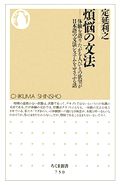
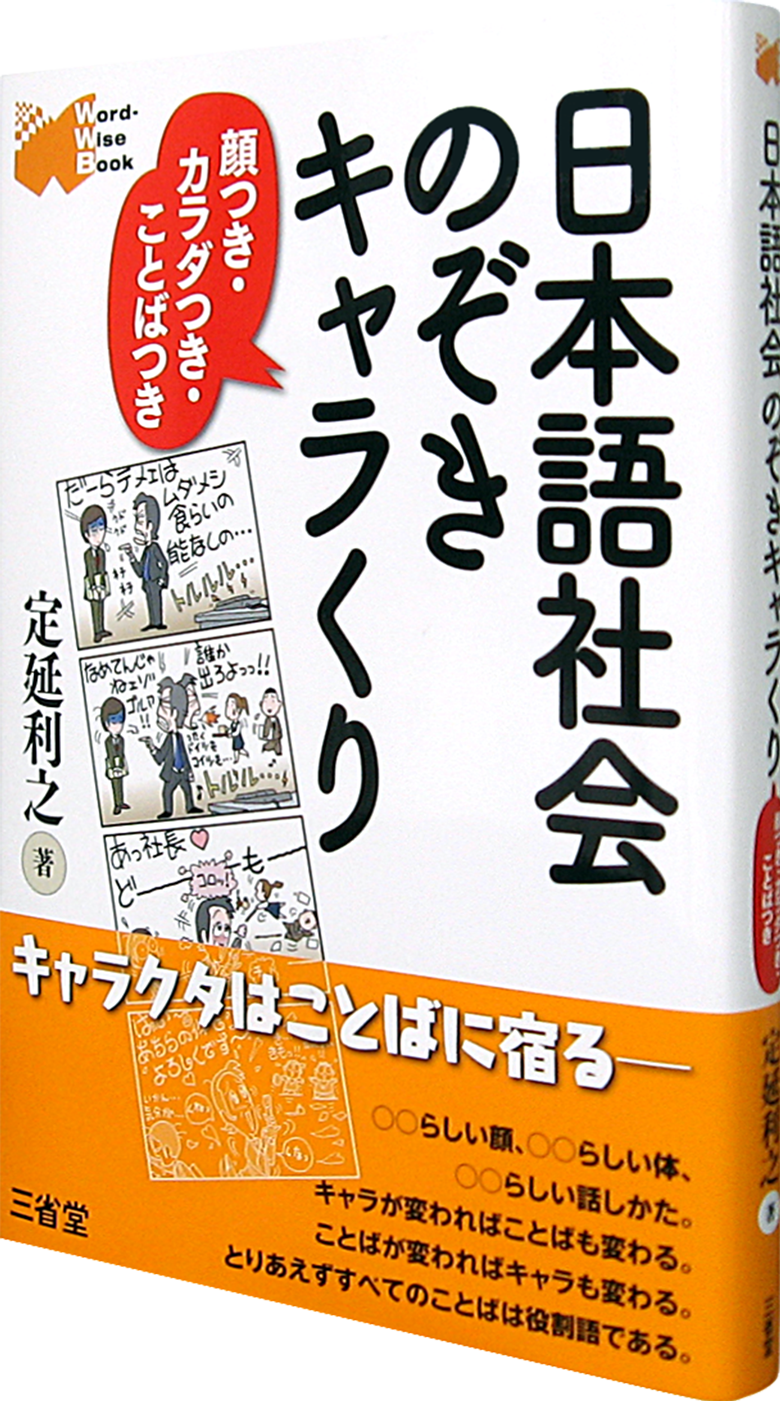
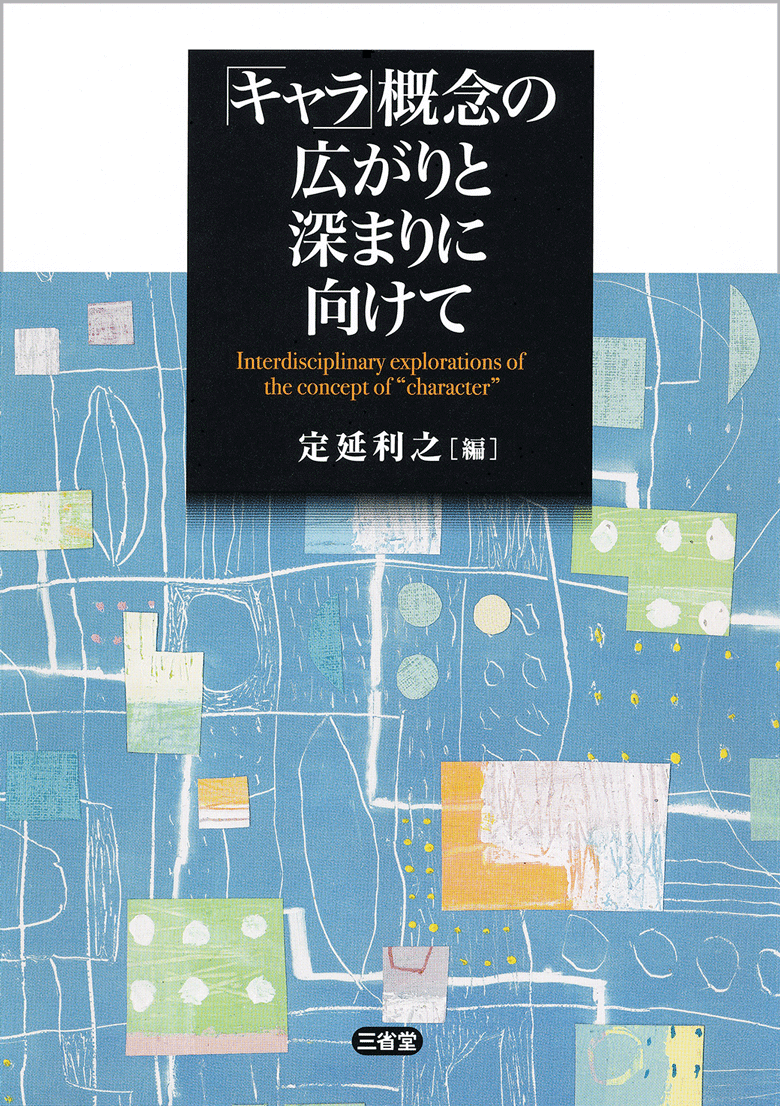

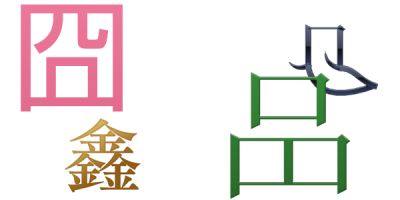
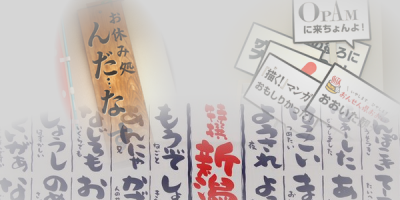
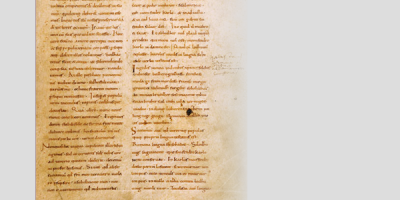
(1) In other words, at the end of neutral/polite sentences. Again, desu is the neutral/polite form of da, while –masu appears at the end of neutral/polite conjugations of Japanese verbs.
(2) Onege-e is rural dialect of onegai
(3) Normally, watashi or watakushi.
(4) This sentence illustrates an interesting tendency in rural Japanese. Many of the consonants become softened, hence tsu and su become zu, ku becomes gu, te becomes de and so on. Perhaps because of the unusually high frequency of “zu” sounds in this dialect it is called “zuzuben” (the zuzu dialect) in some regions. In “standard” Japanese, this sentence would read “Atsukute, atsukute, ore, nanimo wakaranai.”